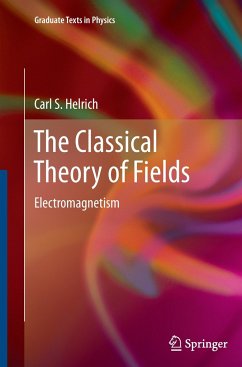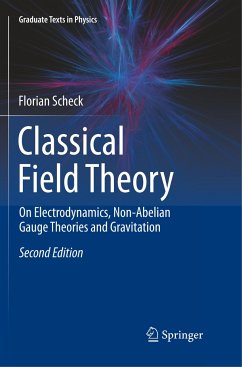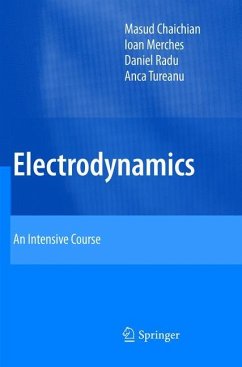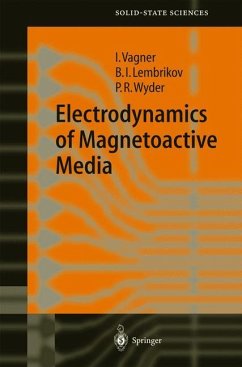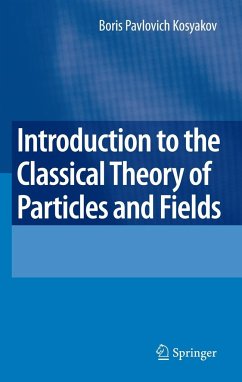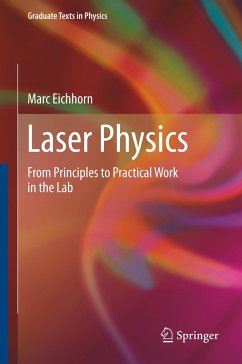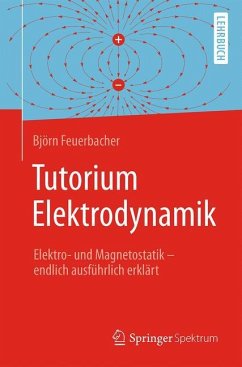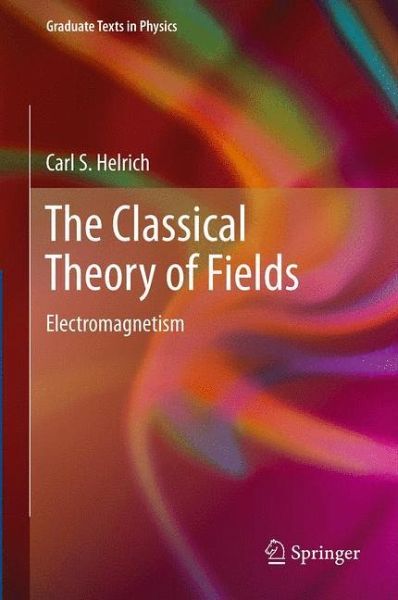
The Classical Theory of Fields
Electromagnetism
Versandkostenfrei!
Versandfertig in 6-10 Tagen
38,99 €
inkl. MwSt.
Weitere Ausgaben:

PAYBACK Punkte
19 °P sammeln!
The study of classical electromagnetic fields is an adventure. The theory is complete mathematically and we are able to present it as an example of classical Newtonian experimental and mathematical philosophy. There is a set of foundational experiments, on which most of the theory is constructed. And then there is the bold theoretical proposal of a field-field interaction from James Clerk Maxwell.This textbook presents the theory of classical fields as a mathematical structure based solidly on laboratory experiments. Here the student is introduced to the beauty of classical field theory as a g...
The study of classical electromagnetic fields is an adventure. The theory is complete mathematically and we are able to present it as an example of classical Newtonian experimental and mathematical philosophy. There is a set of foundational experiments, on which most of the theory is constructed. And then there is the bold theoretical proposal of a field-field interaction from James Clerk Maxwell.
This textbook presents the theory of classical fields as a mathematical structure based solidly on laboratory experiments. Here the student is introduced to the beauty of classical field theory as a gem of theoretical physics. To keep the discussion fluid, the history is placed in a beginning chapter and some of the mathematical proofs in the appendices. Chapters on Green's Functions and Laplace's Equation and a discussion of Faraday's Experiment further deepen the understanding. The chapter on Einstein's relativity is an integral necessity to the text. Finally, chapters on particlemotion and waves in a dispersive medium complete the picture. High quality diagrams and detailed end-of-chapter questions enhance the learning experience.
This textbook presents the theory of classical fields as a mathematical structure based solidly on laboratory experiments. Here the student is introduced to the beauty of classical field theory as a gem of theoretical physics. To keep the discussion fluid, the history is placed in a beginning chapter and some of the mathematical proofs in the appendices. Chapters on Green's Functions and Laplace's Equation and a discussion of Faraday's Experiment further deepen the understanding. The chapter on Einstein's relativity is an integral necessity to the text. Finally, chapters on particlemotion and waves in a dispersive medium complete the picture. High quality diagrams and detailed end-of-chapter questions enhance the learning experience.





